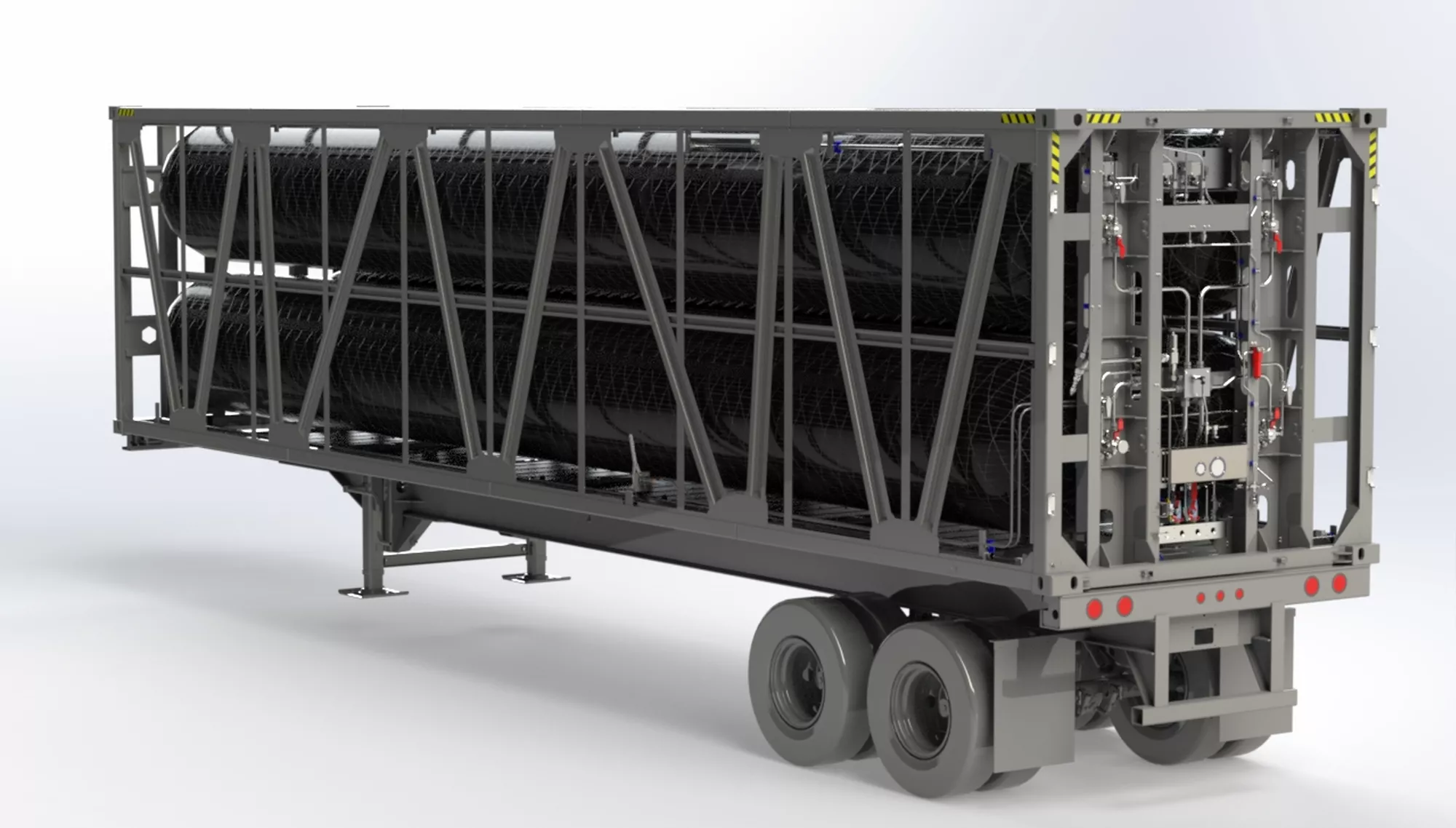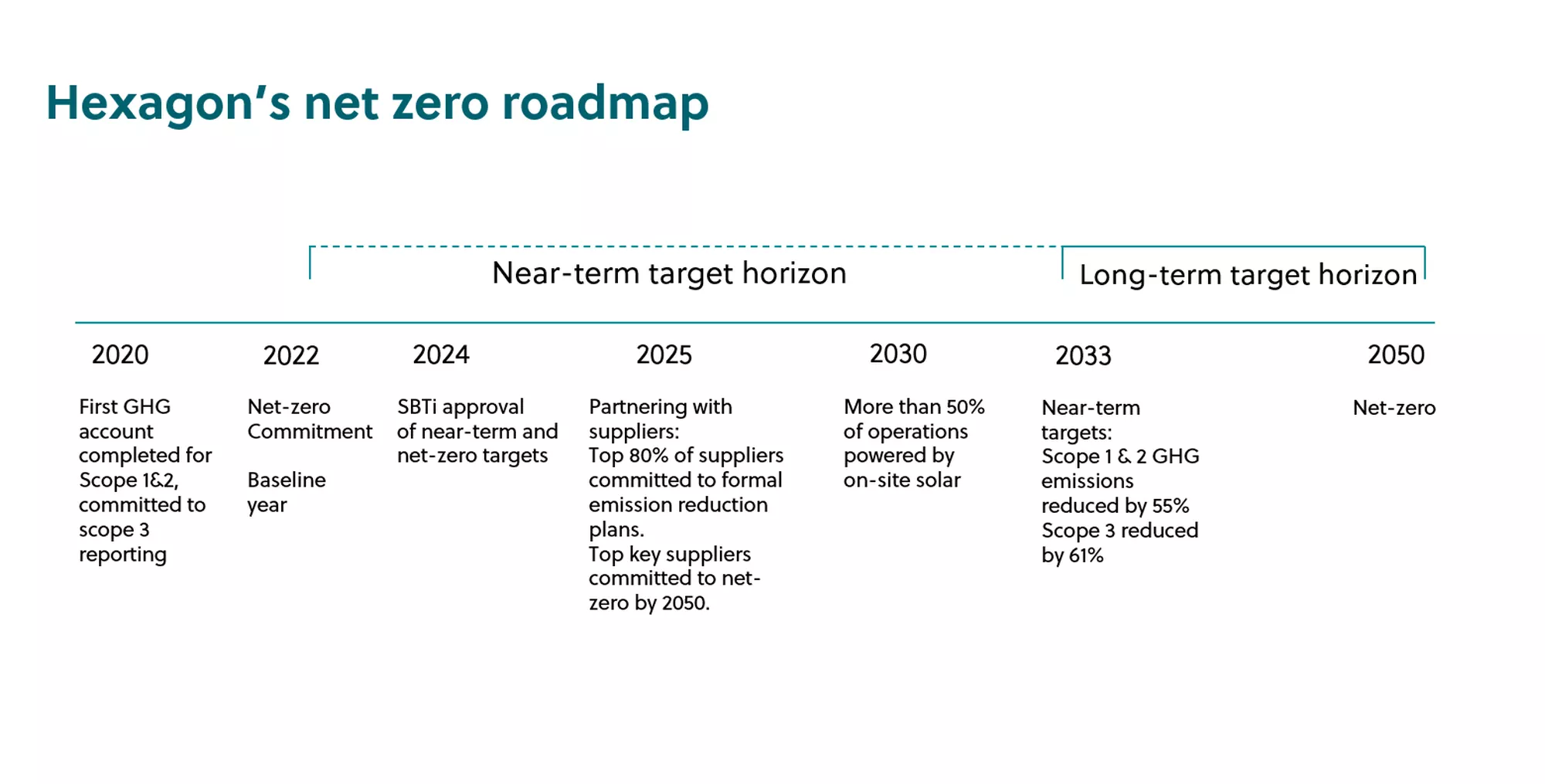In line with the 1.5-degree trajectory, Hexagon will reduce its direct emissions by 2033, and work with partners and suppliers to be net zero across its value chain by 2050.
Near-term targets
By 2033, Hexagon commits to reducing 54.6% of absolute scope 1 and 2 emissions and 61% of Scope 3 emissions per cubic meter of container volume sold.
Long-term targets
By 2050, Hexagon commits to reducing 90% of absolute scope 1 and 2 greenhouse gas emissions, and 97% of Scope 3 emissions per cubic meter of container volume sold.




